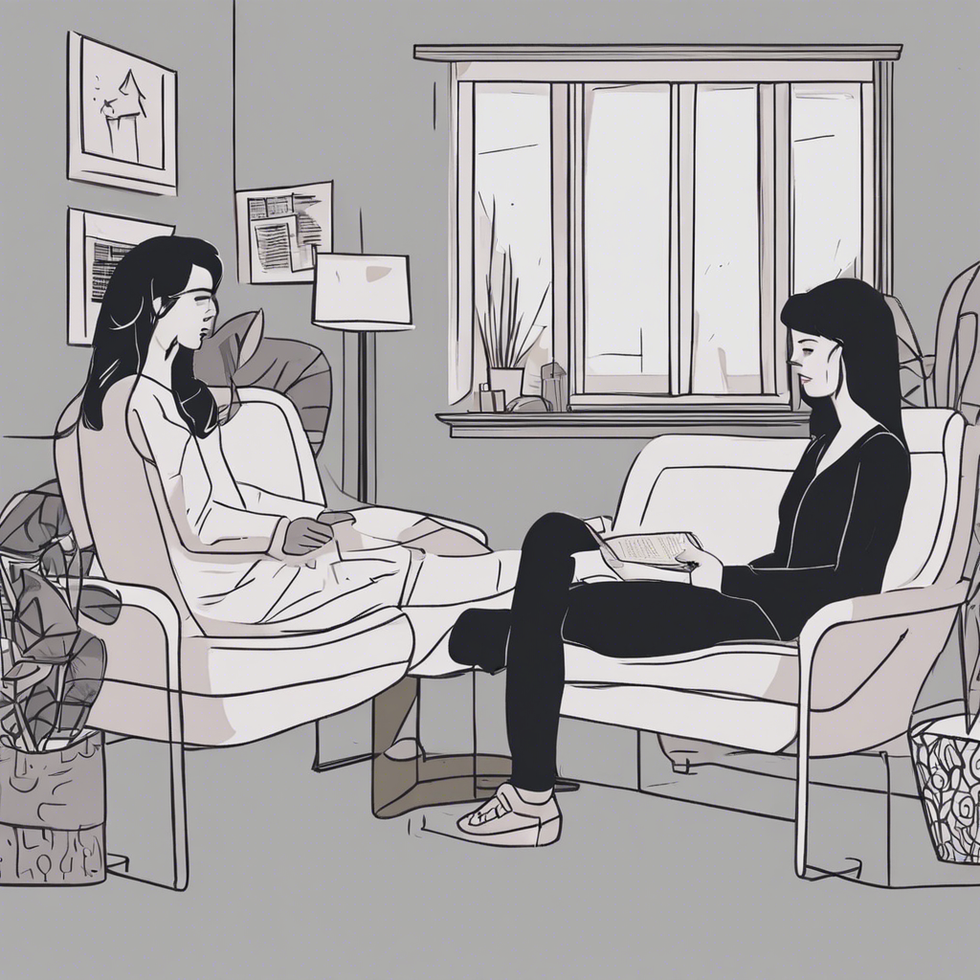What is the opposite of love? Consider your answer carefully.
I believe that there are four types of answers you find to this question, the first three more commonly considered than the last, which I will propose as the most encompassing concept for the opposite of love. Each stage has a single word that summarizes each theory as to what is love’s counterpart.
Disclaimer: this is a big subject to tackle, but it interests me, so note that I don’t claim to be an expert in these areas – I haven’t studied love, hate, apathy, fear, or pride officially or as in depth as I could have done in my life before writing this article, and I have no sources to cite. My writings here are unofficial, but I did do my best with the tools I had, discovering some of my beliefs as I wrote them and processed them, editing points and passages in and out of this article.
My conclusion, therefore, simply comes from what I have gathered from my experience and my evolving beliefs about reality.
To set the stage, I ought to mention that I think there’s more to the true essence love than what the single four-letter, two-dimensional word can sum up easily, and likewise, the opposite of love is quite the same – it is too complex to be fully summarized in a single syllable, without an explanation, and I will explain what I think love means as I go, as well as each possible counterpart to love. After all, love is complex, and therefore, so it must be with its true opposite.
I hesitated to write such an article because something so central to the human heart ought not to be written about lightly. I intend no offense nor any claim to absolute, infallible knowledge. I am still learning about what each of these words means, but I know I'm much further along in understanding these terms than I once was.
So returning to the point: what then would be the first (and inaccurate) stage of what a person might think is opposite of love?
Stage 1: Hatred
And why would it not be love’s opposite? Clearly, the emotional scale would hold the fiery feelings of love and hatred as adversaries. The passion of love draws things near, and protects them, while the passion of hatred casts things away, and destroys them.
But, as one learns as they leave the YA section at their library, as they somehow survive their first heartbreak, and as they finally realize that one’s mother doesn’t make them do the dishes because she hates her kids, one discovers that love is more than an emotion – it’s a mentality, a commitment, it’s service and forgiveness, not just warm-fuzzies.
Love is wiping up your child’s vomit and missing a night out with friends to hold your mother’s hand. It's spending money on paying for your friend's birthday dinner instead of on the new dress you've been eyeing for weeks. Love isn’t just what’s fun or easy. Love is more of a state of being than a state of mind, which needs to be continually made new and reinforced. Love is not as wayward, as easily stirred, nor as easily put out as hatred is.
However, I find the strongest argument of all against hatred being the opposite of love to be the fact that hatred is a secondary emotion: hatred is a reaction. Look this up, there are other articles all over on the internet concerning this idea.
If love is a tree, how can its opposite be hatred, a mere branch?
Hatred is a passion that has been mutated by hurt, and sometimes by fear. Anger is a defense mechanism capping over the deeper, truer, tender feelings underneath. Feelings so complex or personal, we often might not realize that our anger began as being hurt. But Love encompasses the deeper, truer feelings where hatred does not... the deepest thing hatred includes is fear. When one is cheated, lied to, insulted, the resulting anger is an umbrella reaction for a complex of tender feelings, which one wants to protect when they feel threatened. A person that you love can still make you angry, but you can love that person before, during, and after that anger. Wouldn’t you agree that a person who hates their ex still cares? That the love has been mutated? Wouldn't indifference to that person be a better sign of moving on? Thus, I believe a more proper opposite for hatred may instead be liking, infatuation, or mere, fleeting enjoyment.
Hatred and its opposite are actually quite surface level.
Now, although one may hate something they once loved, my argument is not to say that one must love something before they hate it. I never did love clowns or the old man across the street who used to yell at me for running across his yard. But in anything that includes anger and hated, there is an origin of hurt or disappointment with the stimuli that caused that hatred (which could be a person, a food, a game, a place, etc). That stimuli was probably something that the person was neutral to and had no feelings toward, or loved, before a negative experience occurred. Hatred arises from being hurt by something or someone that the person may have loved, or may have thought was harmless or had potential to be good. Hatred arises from being unguarded, or not guarded enough, and receiving an unexpected harpoon straight to the heart. It’s a defense after suffering, and fearing more suffering to come. Anger (and hatred) are not loving, I will agree on that wholeheartedly.
Recap:
I believe that the opposite of love is not hatred, but something more complex. Although an impassioned feeling like love can be, hatred is only a small part of what is truly the opposite of love. Love involves emotion, but it is more complex than that -- it also involves sacrifice and making choices that aren't immediately pleasant, but are worth it. Love is selfless, and hatred is self focused and self defending. It does not consider the perspectives or needs of the other party. Hatred is too simple to encompass a concept as complex as Love's opposite must be.
Therefore, taking all of this into consideration, I will admit that hatred has something to do with the opposite of love. It's not completely wrong to think of hatred as opposed to love. But it isn’t the full story.
So what, then, is the second answer as to what the opposite of love may be?
My next entry in this series will discuss the second of the four stages: fear.



 Photo by
Photo by  person holding black smartphone on white textile
Photo by
person holding black smartphone on white textile
Photo by  StableDiffusion
StableDiffusion
 Photo by
Photo by  Photo by
Photo by 
 roommate as a therapist
StableDiffusion
roommate as a therapist
StableDiffusion
 woman in white shirt eating pizza
Photo by
woman in white shirt eating pizza
Photo by  person holding remote pointing at TV
Photo by
person holding remote pointing at TV
Photo by  person holding assorted clothes in wooden hanger
Photo by
person holding assorted clothes in wooden hanger
Photo by  a couple of
a couple of  friends cleaning apartment
StableDiffusion
friends cleaning apartment
StableDiffusion
 man driving car during golden hour
Photo by
man driving car during golden hour
Photo by  bacon strips and melted cheese topped fries on oval white and blue platter with gray stainless steel forks
Photo by
bacon strips and melted cheese topped fries on oval white and blue platter with gray stainless steel forks
Photo by  selective focus photography of eyeshadow palette
Photo by
selective focus photography of eyeshadow palette
Photo by  brown wooden framed white padded chair in between green indoor leaf plants inside bedroom
Photo by
brown wooden framed white padded chair in between green indoor leaf plants inside bedroom
Photo by  women forming
women forming  taking
taking  man in red polo shirt pouring wine on clear wine glass
Photo by
man in red polo shirt pouring wine on clear wine glass
Photo by  woman in black jacket standing on road during daytime
Photo by
woman in black jacket standing on road during daytime
Photo by 
 StableDiffusion
StableDiffusion
 StableDiffusion
StableDiffusion
 student thinking i shouldnt have procrastinated all semester
StableDiffusion
student thinking i shouldnt have procrastinated all semester
StableDiffusion
 Photo by
Photo by  Photo by
Photo by  Photo by
Photo by  StableDiffusion
StableDiffusion
 StableDiffusion
StableDiffusion
 Photo by
Photo by  Photo by
Photo by 


 Lumiere figure at the Disney Store at the Ala Moana Shoppi… | Flickr
Lumiere figure at the Disney Store at the Ala Moana Shoppi… | Flickr








 StableDiffusion
StableDiffusion StableDiffusion
StableDiffusion 10. Extra BlanketsJuwenin Home 100% Cotton Knitted Throw Blanket
10. Extra BlanketsJuwenin Home 100% Cotton Knitted Throw Blanket StableDiffusion
StableDiffusion StableDiffusion
StableDiffusion File:Kishlaru familie.jpg - Wikimedia Commons
File:Kishlaru familie.jpg - Wikimedia Commons Photo by Hanna Balan on Unsplash
Photo by Hanna Balan on Unsplash StableDiffusion
StableDiffusion black blue and yellow round illustrationPhoto by
black blue and yellow round illustrationPhoto by 









